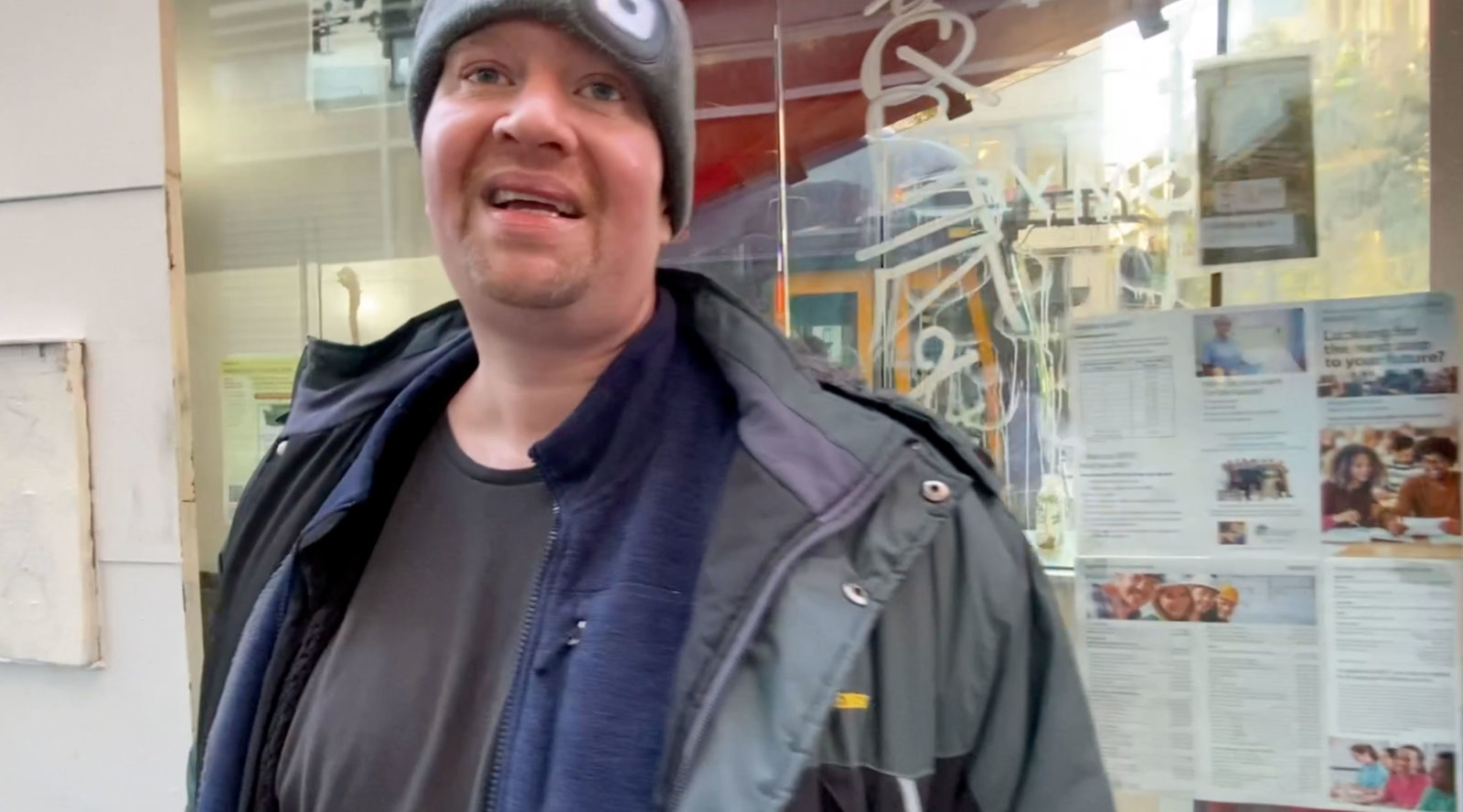There are two downtown Seattles. One that sparkles and shines for the Christmas holiday season, packed with shoppers and tourists in what appears to be a safe and inviting atmosphere.
Then there’s the other. The lights are off and many store fronts remain shuttered along Third Avenue and Pike Street. Despite more police and recent arrests along this corridor, it’s still plagued by crime and a flourishing black market of stolen goods.
Illegal drug use takes place in plain sight. And the nearby alleyways are even worse — full of addicts who come and go at all hours of the day.
So imagine trying to run a business, like the mom and pop shop called Turco’s Last Stand.
Right in the middle of this notorious intersection in the heart of the city, owner Ben Gant says Turco’s has been around since the early 1900’s.
But it’s now a shell of its former self. No newspapers, snacks, or souvenirs. On most days a crowd of drug users use his stand as cover for their illicit activity.
Commenting on how the city is managing the difficulties in the area, Gant says, “We’re not solving any problems, we’re just treating symptoms playing whack a mole.”
Gant describes the area in bleak terms: “It’s been like a war zone, an economic war zone.”
At this point even the homeless are making fun of Gant’s dire situation. With graffiti on the exterior, it remains a favorite target for vandals.
Gant says, “I’ll take the graffiti over windows being broken.” But he complains that “I can’t sell anything out of this newsstand to make a living.” So he only opens for two hours on weekdays, meeting the minimum city requirement to maintain his license to operate selling U.S. Constitutions.
“I’m burnt. I don’t have what it takes to run a business anymore,” says Gant.
Gant says that because it’s a prime piece of real estate, people have made multiple overtures to buy him out over the years, including the Ross store just a few feet away.
He says, “I’m looking for people who would be interested in renting the news stand.” But he sees the potential for something bigger and better.
He’s even thinking of turning this dilapidated property into an outpost to serve the homeless and drug addicts, since they’re already here.
Gants say, “I would really like to have this place be a beacon of light for people who are suffering. They need a place when they have a moment of clarity, they can come and get some help.”
Gant says he needs the city’s help. But he’s waiting on the mayor and other officials to return his calls.
Jon Scholes, President and CEO of the Downtown Seattle Association, commenting on the blight, say, “It’s not everywhere, it’s not on every block in downtown.”
But he says there is no doubt Third and Pike needs to be fully restored for this part of the city to truly make a comeback.
“I think we’ve made some progress over the past several months, so we need to sustain the effort. We need to see an increased law enforcement presence, and we need to see more social workers too to connect with people in need,” says Scholes.
Global clothing giant Uniqlo is taking its chances, moving into the old Macy’s building last month, just a few blocks away from this crime hot spot. But for the smaller players, they’re stuck in the middle of the front lines.
Gant keeps his business going. But he wonders how much longer he can take the abuse.

